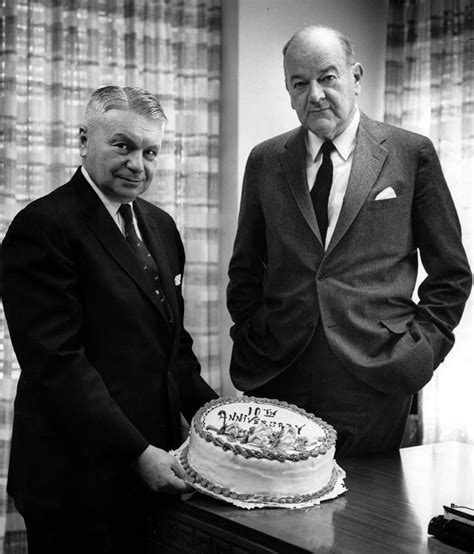A Quote by Michael Sandel
If you go back to Adam Smith, you find the idea that markets and market forces operate as an invisible hand. This is the traditional laissez-faire market idea. But today, when economics is increasingly defined as the science of incentive, it becomes clear that the use of incentives involves quite active intervention, either by an economist or a policy maker, in using financial inducements to motivate behavior. In fact, so much though that we now almost take for granted that incentives are central to the subject of economics.
Quote Topics
Active
Adam
Almost
Back
Becomes
Behavior
Central
Clear
Defined
Economics
Economist
Either
Fact
Financial
Find
Forces
Go
Granted
Hand
Idea
In Fact
Incentive
Incentives
Increasingly
Intervention
Invisible
Invisible Hand
Involves
Maker
Market
Market Forces
Markets
Motivate
Much
Now
Operate
Policy
Quite
Science
Smith
Subject
Take
Take For Granted
Though
Today
Traditional
Use
Using
Related Quotes
I believe in market economics. But to paraphrase Churchill - who said this about democracy and political regimes - a market economy might be the worst economic regime available, apart from the alternatives. I believe that people react to incentives, that incentives matter, and that prices reflect the way things should be allocated. But I also believe that market economies sometimes have market failures, and when these occur, there's a role for prudential - not excessive - regulation of the financial system.
Although I have made a fortune in the financial markets, I now fear that the untrammeled intensification of laissez-faire capitalism and the spread of market values into all areas of life is endangering our open and democratic society. The main enemy of the open society, I believe, is no longer the communist but the capitalist threat.
The challenge here is to design a system where market incentives, including profits and recognition, drive those principles to do more for the poor. I like to call this idea creative capitalism, an approach where governments, businesses, and nonprofits work together to stretch the reach of market forces so that more people can make a profit, or gain recognition, doing work that eases the world's inequities.








































